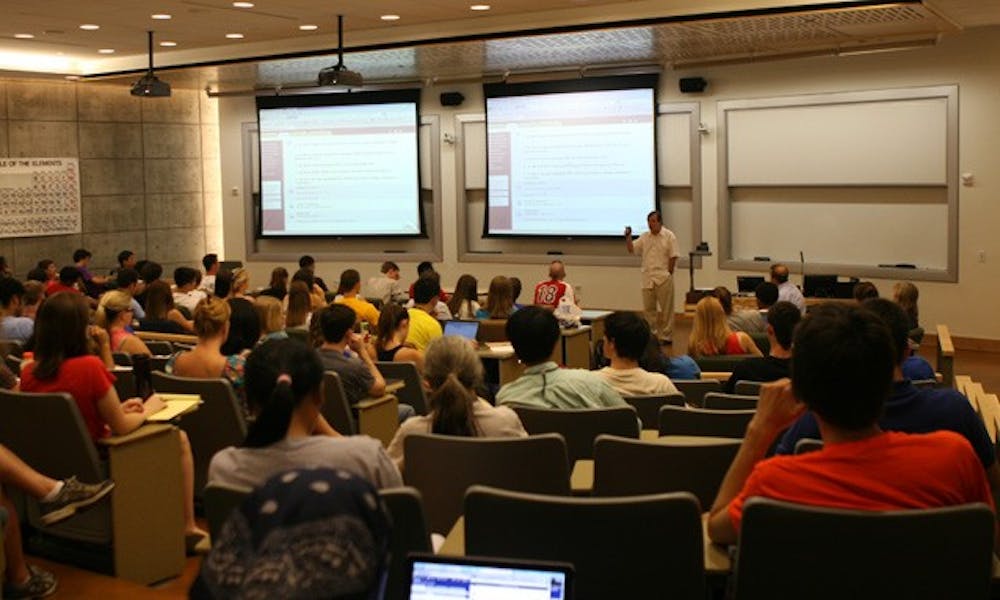They may not be experts, but students in many of Duke’s global health courses are some of the first to study the COVID-19 pandemic in an academic course.
With the monumental changes of the past few weeks, coronavirus is at the forefront of all students’ minds, and global health classes provide a platform to discuss the crisis in an academic setting. As a result, the focus of many of these classes has shifted to incorporate the experience of living through a pandemic.
Jeffrey Moe, professor of the practice of global health, teaches Global Health Ethics, and he took an active approach to integrating the pandemic into the course’s curriculum. He split his class into five separate teams, each of which will examine different domains of the virus: economics, containment, diagnostics/treatment, rationing supplies and communications.
Each team is investigating various questions surrounding the virus, response and policy decisions using knowledge from the coursework pre-spring break.
In addition, Moe invited guests from the front lines of the coronavirus response to provide insights into the outbreak. For instance, Tim McMahon, professor of medicine in Duke’s division of pulmonary, allergy and critical care medicine, described to the class the potential impact of faster diagnostic tests, which may soon become a reality.
“We’re making time within [the syllabus] to apply to the current issue,” Moe said. Still, he noted that studying coronavirus objectively may be difficult given its proximity to students’ lives. At least two students in his class have relatives infected with COVID-19, Moe said. He emphasized the salience of global health during this outbreak, as well as the added element of bringing people together through shared hardship.
“The immediacy of it could be a downside in that it would be more difficult to appreciate that hard choices have to be made at the state level, but I think the benefits outweigh the costs,” Moe said.
While Moe took a proactive approach by readily integrating the pandemic, other professors elected not to. David Toole, associate professor of the practice of theology, ethics and global health, teaches Global Health as an Ethical Enterprise, but he did not seek to incorporate the current situation.
“I didn’t want to switch gears and take the next five weeks to think about coronavirus, because the whole point of the course is actually trying to give them a basis in ethics that allows them to apply it to global health,” Toole said.
While Toole has adjusted the curriculum only to ease the load on students, he has still seen the disease work its way into discussion. After reading Peter Singer’s book "The Most Good You Can Do" on effective altruism, almost all of the students’ reflection papers considered the current pandemic, Toole said. In a subsequent lecture about the book, he noted that the entire discussion was driven by the coronavirus, as students tried to apply Singer’s concepts to decisions about shutting down the economy and social distancing.
“I use the same reading I always use, but the discussion was entirely different,” he said. “It’s a course that is well-positioned to let that happen.”
First-year Payton Little said that the pandemic has allowed her to connect Toole’s lessons to relevant global issues.
“I look on the news and see how the ethics is applicable to what is happening right around me,” Little said.
Get The Chronicle straight to your inbox
Signup for our weekly newsletter. Cancel at any time.

